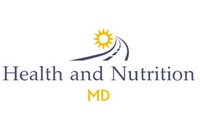
Did you know that eggs may promote good health. Maybe you did. But, do you know how many you should eat? Probably not, because nobody really knows. In recent years we have somehow become a little bit afraid of eating eggs. We have been warned that they may be harmful because they contain so much cholesterol. Everybody knows that high blood cholesterol has been associated with heart disease.
General recommendations usually state that our daily intake of cholesterol should not be more than 300 milligrams. One egg probably contains somewhere between 180 - 200 milligrams of cholesterol. This cholesterol is mainly found in the yolk. Thus, it is clear that you cannot eat many eggs in a week if you are going to obey to the above recommendation.
However, recently it has become clear that cholesterol in food does not to affect blood cholesterol as much as previously thought. Only a small fraction of the cholesterol we eat goes into the blood stream. The liver produces cholesterol. It´s an important substance for the body. Cholesterol is an integral part of cell membranes and many hormones. Some experts have said that if we eat little cholesterol, the liver will just produce more and if we eat much cholesterol, the liver will just produce less. Therefore, it may not matter at all how much cholesterol we eat. Although this hypothesis is still debated, todays evidence suggests that moderate consumption of eggs will not significantly affect your blood cholesterol. There is no evidence available at all suggesting that eating eggs will increase the risk of heart disease.
Many nutritional experts today claim that eating saturated fat is much more likely to raise your blood cholesterol than eating cholesterol. Eggs do contain some saturated fats but they are also rich in healthy monounsaturated and polyunsaturated fats. It may however matter for your health how you prepare your eggs and what you choose to eat with them. Boiling the eggs is healthy, simple and easy. You don´t have to fry the eggs in fat. Stay away from the bacon, at least if you are trying to avoid saturated fats or lower your cholesterol.
Eggs have a high nutritional value. They are rich in protein, healthy fatty acids and vitamins. They contain a lot of vitamin D. They have no carbohydrates at all. Eggs are rich in a substance called choline. Recent research indicates that choline deficiency may be quite common. Choline may help reducing inflammation. One egg contains 25% of our daily need for choline.
Eggs are a relatively satiating food. Eggs may help you lose weight, partly because they will help you stay away from unhealthy carbohydrates.
My conclusion is that eggs are a healthy food choice and a good source of nutrients. They are satiating and a good source of energy. One egg a day is fine and there is no evidence that it will do you any harm.




